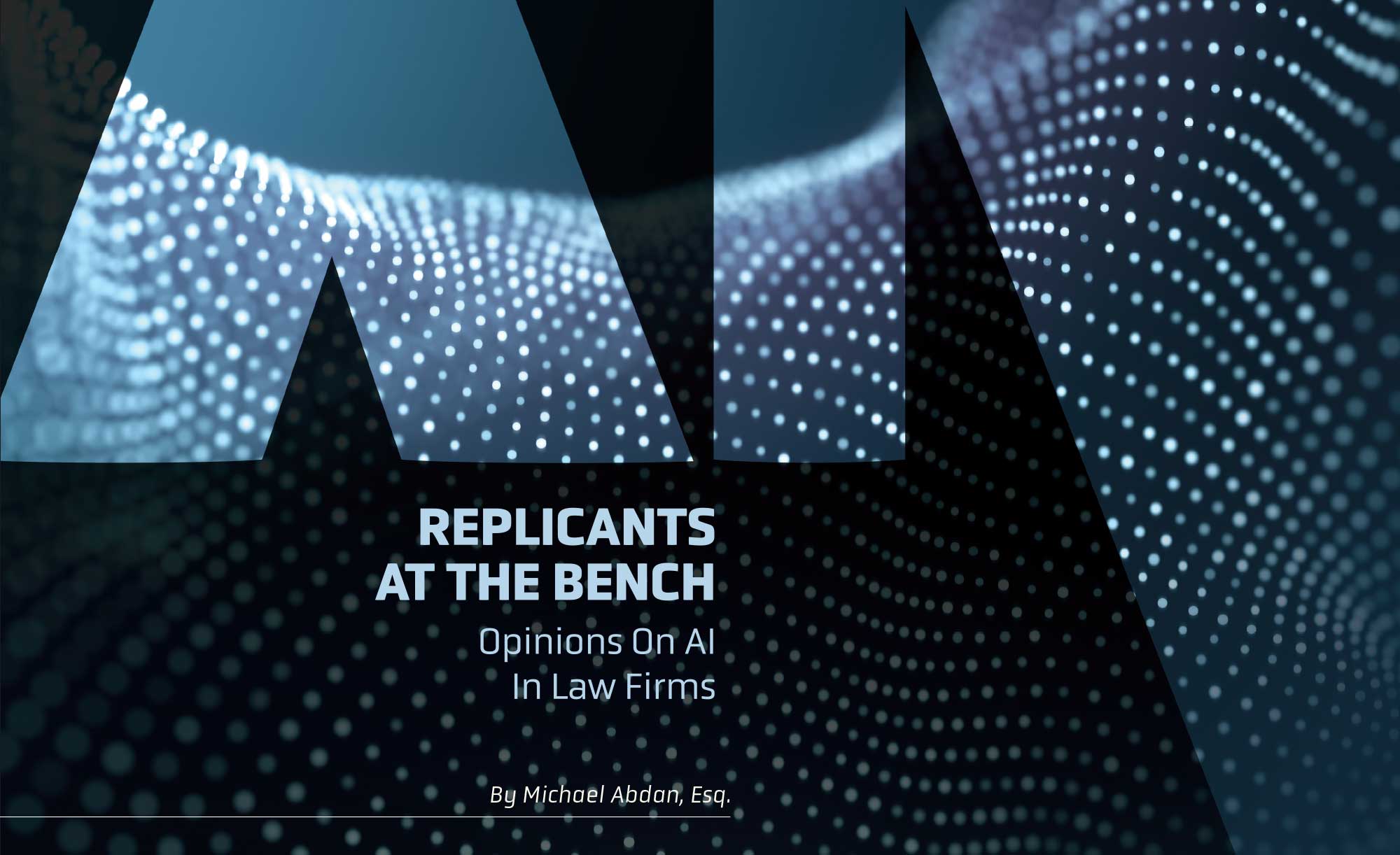Share Your Story with Trial Lawyer’s Journal
Trial Lawyer’s Journal is built on the voices of trial lawyers like you. Share your journey, insights, and experiences through articles, interviews, and our podcast, Celebrating Justice.
Stay Updated
Sign up for our newsletter to get the latest from TLJ.
Replicants at the Bench: Opinions On AI In Law Firms

By Michael Abdan, Esq.
An android — a human robot — confidently addressing a courtroom, its digital eyes gleaming with intelligence. The judge and jurors, captivated. What’s remarkable isn’t the futuristic spectacle, but that this AI can outspeak, outthink, and match seasoned trial lawyers head-to-head.
If Hollywood has taught us anything, it’s that AI always knows more than it lets on. Remember HAL 9000, the sentient computer, in “2001: A Space Odyssey”? HAL wasn’t just any ordinary assistant; he had intelligence that surpassed human comprehension. And Ridley’s Scott’s masterpiece: “Blade Runner,” a film where AI goes beyond mere data crunching. Replicants, those bioengineered beings from Tyrell Corp., were designed to be “more human than human.” And who can forget James Cameron’s “Aliens,” where the corporate sycophant, Burke, was supplanted by an android named Bishop?
Featured Articles
-
Glossary
What is a Demurrer Judgment?
What is a Demurrer Judgment? A Demurrer Judgment is a court ruling issued after a defendant files a demurrer, arguing that the plaintiff’s complaint.
-
Glossary
What is the TPPRA?
What is the TPPRA? The TPPRA, or Third Party Payor Recovery Act, is a legal statute—most notably used in states like Texas—that gives third-party.
-
Glossary
What are Jury Instructions?
What are Jury Instructions? Jury instructions are the formal legal directions given by a judge to the jury before deliberation in a trial. These.
Explore our Contributors
Discover Next
Insights from Experts
Learn from industry experts about key cases, the business of law, and more insights that shape the future of trial law.







